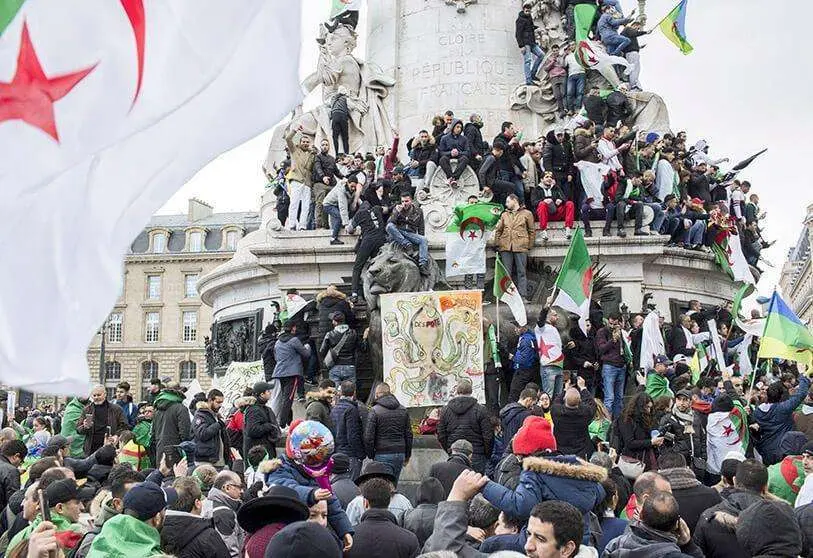Memory and truth for franco-algerian reconciliation

Barely a year remains to commemorate the 60th anniversary of the Evian Agreements (1962), which put a definitive end to Algeria's terrible and bloody war of independence, and whose wounds continue to heal today. French President Emmanuel Macron is embarking on a new attempt to heal them, aware that the absence of a definitive reconciliation between Algiers and its former metropolis prevents the development of the many potentialities of a cooperation that would be very fruitful if the bitterness of old grievances did not remain in the background.
After the first abortive attempts by Presidents Jacques Chirac and Nicolas Sarkozy to reconcile the "historical memories" of the two countries, Emmanuel Macron entrusted the historian Benjamin Stora last July with the mission of drawing up "the memory of colonisation and the Algerian war", without prejudice or pressure.
Born in the city of Constantine in 1950, Stora is considered one of the great specialists in Algerian history, and more particularly in the war which, between 1954 and 1962, tore apart metropolitan society and the French and Algerians of the largest French overseas department at the time. Seven months after accepting the mission, Stora has just submitted to Macron his conclusions and recommendations, the first of which is the recognition of the historical facts, i.e. the exactions, systematic torture and forced disappearances of recognised independence fighters and even mere suspects.
Stora consciously avoids including the eternal Algerian demand for repentance on the part of France, which has always been opposed by the two million pieds-noirs (French people born and brought up in Algeria, and who have never even visited metropolitan France), who have had to leave practically with their clothes on their backs a country they have always held in their hearts because they considered it to be their little homeland. The historian does not stop at the mere presumed guilt of these Frenchmen, he also recommends asking Algeria to elucidate, and therefore to admit, the massacres of the Europeans, especially the one perpetrated in the Oran region.
It is estimated that almost sixty years after the end of the war, there are still some seven million "survivors", if we count the pieds-noirs, the harkis (Algerians who collaborated with the French and were then abandoned to their sad fate) and the replacement veteran soldiers, thrown into a conflict which, contrary to the classics of the time, was conducted on the basis of guerrilla warfare, sabotage, kidnappings and massive, indiscriminate attacks and bombings.
In addition to tempering the bitterness of individualised memories, Stora alludes to the two major macro issues that, in his opinion, must be resolved in agreement with Algeria. The first is the opening of the military archives corresponding to this period, in which it is presumed that all the secret or hidden operations carried out by the dreaded Gallic parachutists, as well as the justifications or arguments on which they were based and supported, will be documented. This is a constant request of all Algerian presidents, which the French armed forces have always opposed, even vehemently.
The second claim corresponds to the radioactive legacy of French nuclear tests in the Sahara. Even under its full sovereignty, Paris has conducted several tests at the Reggane test site, nearly 1,700 kilometres south of Algiers. From one year before independence until four years after it was granted, France moved from open-air to underground tests in facilities built under the desert at In-Ekker. Although no explicit reference was made to the testing of the first French atomic bombs, the Evian agreements granted permission to use these facilities for a further five years. Subsequent investigations suggest that the French military presence, after the dismantling of the Reggane and In-Ekker facilities and the Colomb-Bechar-Hammaguir complex, was extended to the B-2 base at Namous for chemical weapons testing, thanks to a secret agreement with President Houari Boumédiène, according to revelations by Algerian General Rachid Benyelles, quoted in Le Monde by Fréderic Bobin and Dorothée Myriam Kellou.
As with the other nuclear powers that emerged after the Second World War, French tests in Algeria and Polynesia have claimed victims of radioactivity. In order to compensate them, Paris created the Committee for the Compensation of Victims of Nuclear Tests (CIVEN) in 2010. Since then, this body has received a total of 1,739 individual claims, including 52 from Algerian citizens. It has granted 545 awards, but has recognised only one claimant from Algeria as a victim. It is this alleged rejection of the Algerian victims of the French atomic tests that has led to the exacerbation of spirits on this southern shore of the Mediterranean, under the impetus of scientists such as Amar Mansouri, who have no hesitation in describing the tests as "nuclear crimes".
It is one of the most sensitive parts of the historic Franco-Algerian conflict. As Stora suggests in his report to President Macron, it is essential to create a "Memory and Truth" commission, composed of leaders and members of civil society from both countries. They would be charged with the immense task of reconciling the memories of both sides, once the facts have been set out in all their crudeness. With strict respect for history, these facts cannot be changed, but the perception of the new generations, trapped in a self-serving history that is often distorted, manipulated and manipulated for electoral reasons in both countries, can.
There is probably still a lot of pus in the wounds caused by this war, but it is not inexorable that it will be impossible to heal and cauterise them, otherwise it will prevent the Algerians and French of today and tomorrow from living without mistrust or reluctance and working together for a better and more prosperous Maghreb and Mediterranean.

